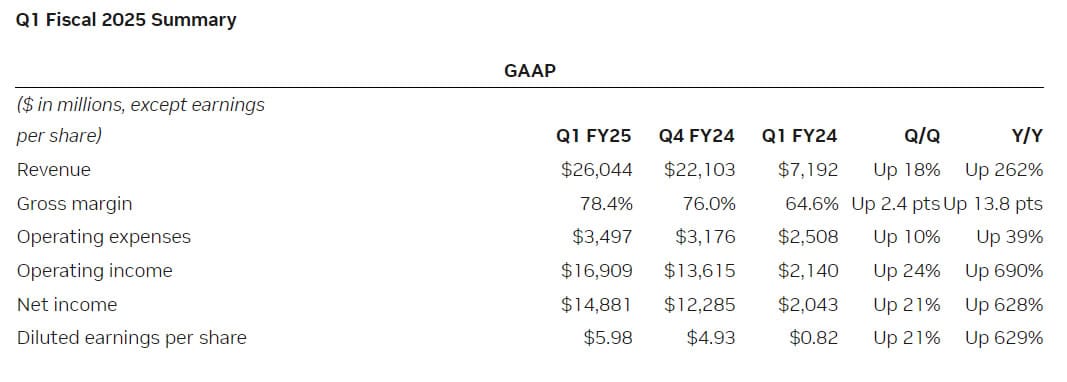Nvidia, the renowned semiconductor giant, has further solidified its commitment to the future of artificial intelligence (AI) after a remarkable quarterly performance. With its market cap reaching an unprecedented $2.5 trillion, Nvidia has demonstrated the lucrative potential of AI technologies in driving corporate success.
Record-Breaking Financial Performance
Nvidia’s Q1 earnings report unveiled on May 22 highlighted an 18% revenue increase from the previous quarter and a staggering 262% surge year-over-year, comfortably surpassing analyst predictions of $24.6 billion. This impressive growth propelled Nvidia’s stock to an all-time high in after-hours trading, reaching just over $1,000 per share and elevating its market capitalization to more than $2.5 trillion.
Accelerated AI Chip Production
At the heart of Nvidia’s success is its burgeoning data center revenue, which accounted for $22.6 billion, driven primarily by the escalating demand for generative AI training solutions. Nvidia’s founder and CEO, Jensen Huang, emphasized the transformative impact of AI, describing it as the cornerstone of the next industrial revolution with data centers evolving into AI factories.
Building on this momentum, Huang announced the full-scale production of the new Blackwell platform, designed for trillion-parameter-scale generative AI supercomputing. This marks a strategic shift for Nvidia, transitioning from a biennial to an annual production cycle for its AI chips. The announcement underscores Nvidia’s commitment to maintaining its leadership in the AI space, continually innovating and adapting to the rapidly evolving tech landscape.
Strategic Partnerships and Innovations
Further enhancing its AI strategy, Nvidia has expanded its collaborations with major cloud service providers such as Amazon Web Services (AWS), Google Cloud, Microsoft, and Oracle. These partnerships are aimed at advancing generative AI innovation across various platforms.
In addition to its enterprise-level advancements, Nvidia also revealed new AI-driven technologies for gaming. Innovations such as Nvidia ACE and Neural Graphics are set to revolutionize gaming experiences, making them more immersive through advanced AI integration, although it was noted that gaming revenue dipped slightly by 8% from the previous quarter.

Future Directions and Industry Impact
Looking forward, Nvidia remains dedicated to pushing the boundaries of AI technology in diverse sectors including automotive, robotics, healthcare, and semiconductor manufacturing. This expansive approach not only reinforces Nvidia’s dominant position in the market but also promises to drive further growth and innovation in these critical industries.


















